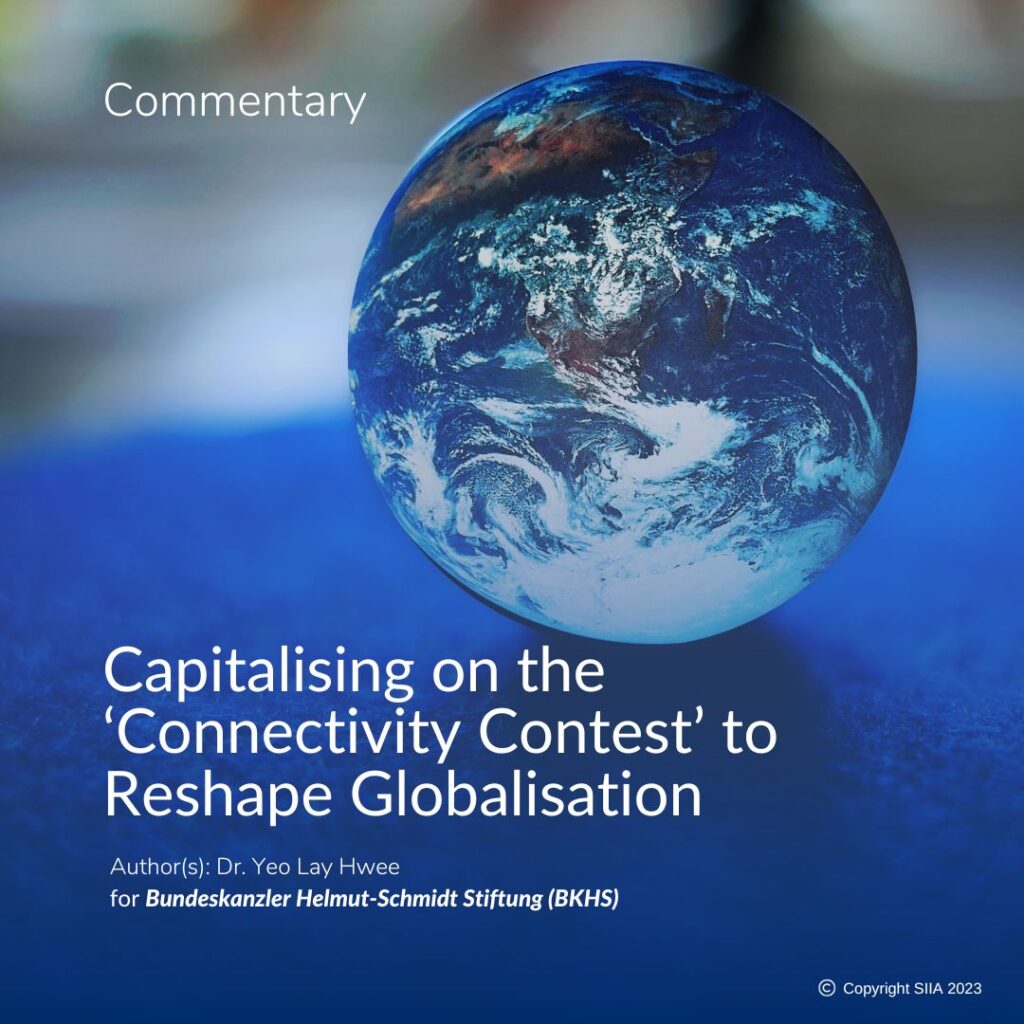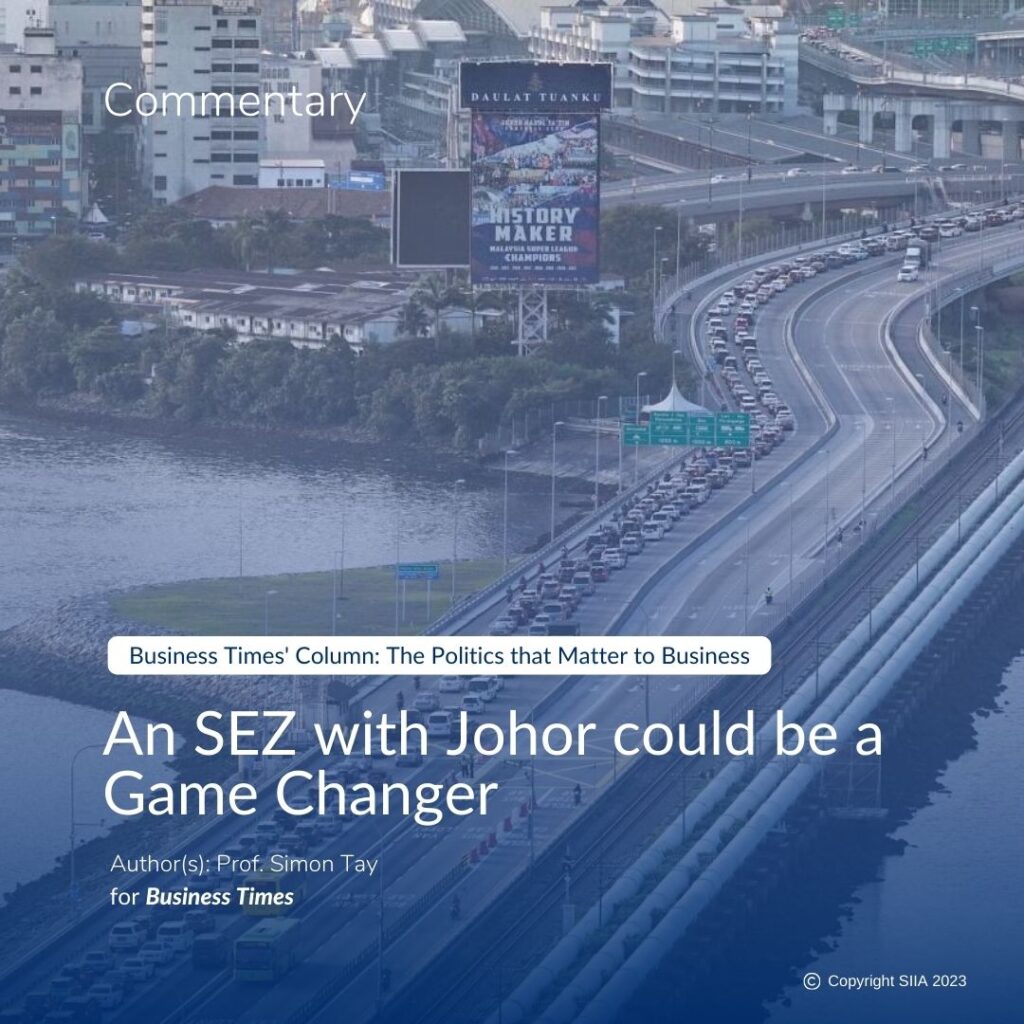Simon Tay
For The Straits Times
Controversy about Sino-Singapore relations is resurfacing. Veteran diplomat Bilahari Kausikan reportedly warned that China “wants you to think in such a way that you will, of your own volition, do what it wants without being told.” China’s Ambassador to Singapore, Hong Xiaoyong, rejected such assertions, and assured all that China has “no intention” of influencing the “national identity” of Singaporeans.
This recent exchange might bring to mind the rough patch in Sino-Singapore relations from 2016-2017, sparked by the South China Sea dispute. It is wrong to bash China and right to be concerned about potential turbulence in bilateral relations. But this should not bury Ambassador Kausikan’s underlying point. It is necessary to understand how powerful states exercise influence in today’s world.
Concerns about China abound. Australia, in response to “disturbing reports about Chinese influence”, recently toughened penalties for espionage, implemented regulations for lobbyists and tightened rules about foreign ownership of real estate. Worries about Chinese labour are gaining traction in Indonesia, while the new Malaysian government has delayed projects under the Belt and Road Initiative. A Financial Times report on June 11 also alleged that over 200 news outlets – while supposedly independent – are influenced by Beijing.
Anti-China sentiments have risen, just as China has risen. Are such fears well-founded?
DOESN’T EVERYONE DO IT?
Consider that other countries, especially those in the West, also exercise influence.
For decades during the Cold War and after, the United States promoted its values. Some were benign efforts such as exchange programmes. In the 1960s, my late father, then a senior civil servant, received an Eisenhower Fellowship, named after the American President, to make an extended study tour in that country. He duly returned with books about American politics and leadership that then became part of my own education, growing up. Decades later, I was honoured to accept the same Fellowship.
There are also less benign examples. The Singapore government has a long-standing debate with the Western media – not only with rebuttals, but also utilizing defamation suits and special laws to sharply cut circulation. One clandestine effort was the Hendrickson affair, when a US diplomat was expelled after allegedly encouraging opposition activities in Singapore’s 1988 election.
Such activities persist, and can now involve private organisations. More than a few countries are watchful about non-government organisations such as George Soros’ Open Society Foundations. In the case of the Pink Dot Rally held in Singapore in 2017, the Ministry of Home Affairs has sternly warned foreign corporate entities against funding, supporting or influencing “events that relate to domestic issues”.
Any attempts by China to influence opinion must be seen as only the latest in a long line of similar activities by major powers.
One difference at present is that Beijing’s efforts may seem rather heavy-handed and clumsy. In a speech on June 12, Mr Kausikan criticised how China’s ambassador to Malaysia openly campaigned for the President of the Malaysian Chinese Association during the recent General Election. This was not only clumsy but potentially counterproductive, given domestic sensitivities about ethnicity in Malaysia.
Yet, some in China are becoming more adroit and nuanced. On a visit to Yangon, for instance, I met China’s Ambassador to Myanmar and was struck by how well and warmly he spoke about bilateral cooperation. This provided a sharp and appreciated contrast to the forceful tone that China’s officials used in the past.
Chinese media outlets like CCTV and even the China Daily are also increasing in sophistication and professionalism in their operations, with growing understanding of our region.
The American political scientist and former Kennedy School Dean, Joseph Nye, famously coined the term “soft power” to describe how countries seek to influence and co-opt others, rather than coercing them with threats or offering bribes.
Potential for subtle and hidden influence has also vastly expanded with the spread of social media. The recent Cambridge Analytica scandal reveals how 87 million Facebook accounts were harvested so that “fake news” might influence their thinking and nudge their actions.
Even as activities by external actors grow more sophisticated, the proverbial “velvet glove” should not blind us to the steely grip of the hand within. So what can be done?
BARB WIRE AND BUBBLE WRAP
Societies cannot close themselves off today. Nor can we always point fingers at specific suspects without straining bilateral ties. The recent data theft from the Singapore Health System exemplifies this need for discretion. Our government has chosen not to publicly name any suspect despite suspicion that foreign entities were behind the hacking.
Some will call for efforts that “bubble wrap” our people by restricting information flows through regulation, and “barb wire” rules to punish propagators of false news.
One example of “bubble wrapping” is how the Political Donations Act forbids political parties and designated institutions in Singapore from receiving foreign donations. “Barb wire” regulations were also used against former Lee Kuan Yew School of Public Policy Professor Huang Jing, who was accused of “deliberately and covertly advancing the agenda of a foreign country at Singapore’s expense”. New laws are also being considered to punish “fake news”.
A different approach would aim to “inoculate” our people against external influence – to better educate the population against being misled by deliberate falsehoods.
Such efforts would aim to keep Singaporeans aware of current events, helping form their own opinions on what is best for Singapore and themselves. Indeed, Mr Kausikan recognised this in a less-noted part of his speech, where he expressed that “an educated public is the best defence against external influence.”
Some of the issues raised can involve racial and religious sensitivities, and Singaporeans should redouble efforts to build trust within communities, and encourage honest conversation between disparate groups. Where public discourse might be too sensitive, closed-door discussions can serve to reach out more selectively.
Debating China’s influence and intentions will be controversial. Yet this cannot be avoided in the competition for influence and respect among major powers. In societies where there are sizeable numbers of ethnic Chinese – not only Singapore but in many parts of our region — this can take on cultural and ethnic tones. Where there is an elite that has been primarily educated in Western ways and is informed by Western media, influences are often built into the status quo.
Inoculating our people will be a long-term and unrelenting responsibility. But such an effort to broaden perspectives will be a better and more fundamental assurance than relying on barb wire and bubble wrap. Only then can Singapore thrive as a diverse and open society in a complex world of contending powers and viewpoints.
ABOUT THE AUTHOR
Simon Tay is an Associate Professor at the National University of Singapore Faculty of Law and Chairman of the Singapore Institute of International Affairs (SIIA). This commentary was first published in The Straits Times on 26 July 2018.




